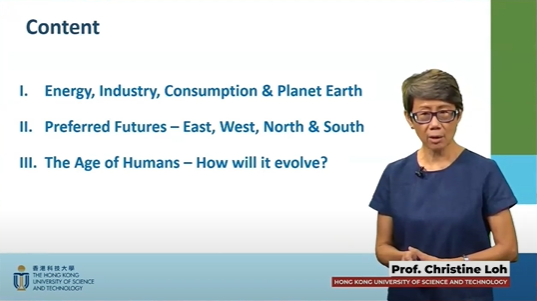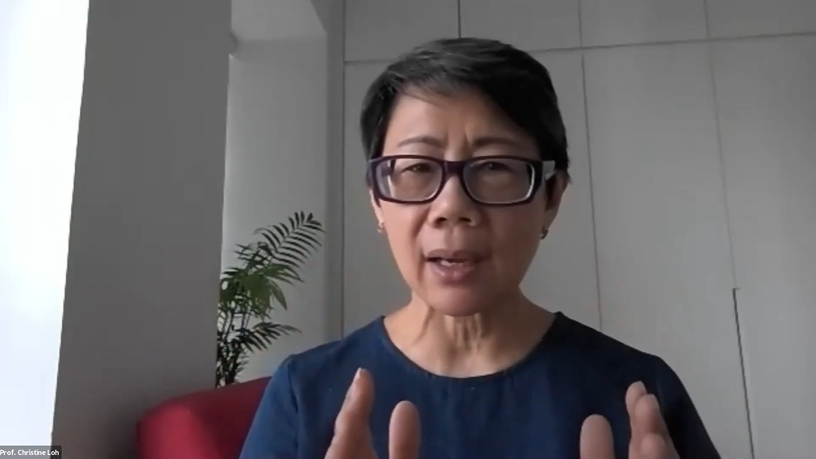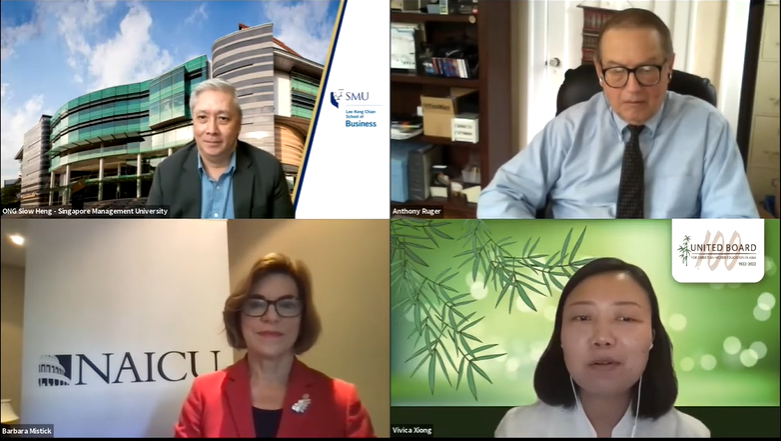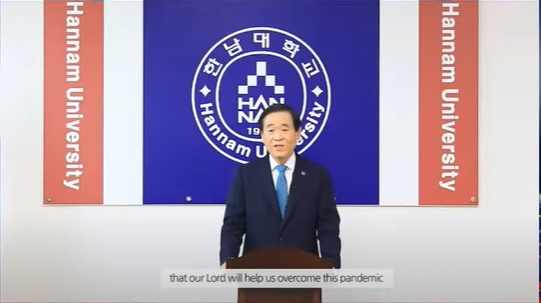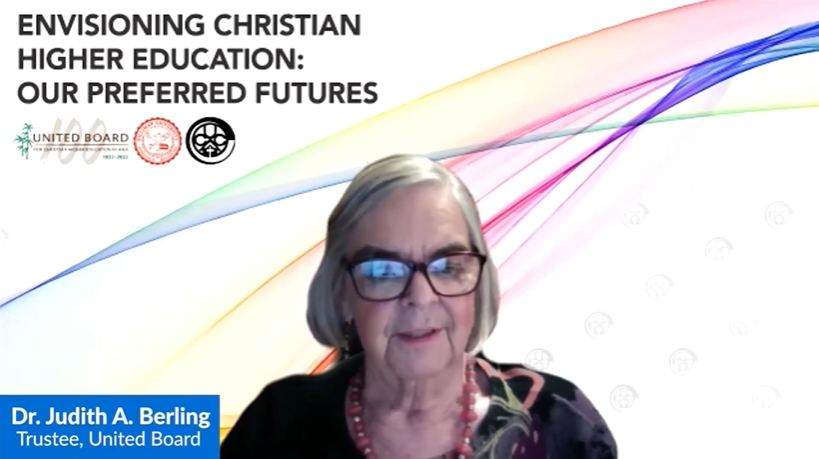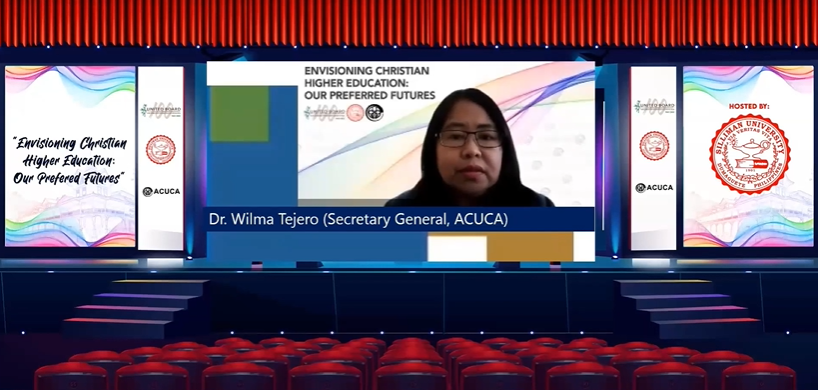Joint Consultation day 2 tackles climate change, bouncing back from pandemic
Educators and experts from Christian higher education institutions (HEIs) in Asia discussed addressing climate change and bouncing back from the COVID-19 pandemic on the second day of the virtual Joint Consultation of the Association of Christian Universities and Colleges in Asia (ACUCA), Silliman University (SU), and the United Board.
The Consultation, attended by representatives of Christian HEIs in Asia, continued July 17, 2021 for its second day with conversations leading to their preferred futures in the face of current issues that affect education and society.
Prof. Christine Loh, chief development strategist at the Hong Kong University of Science and Technology (Hong Kong) and the keynote speaker for the second day of the Joint Consultation, talked about the importance of development that addresses climate change and its effects.
Reimagining developmentLoh suggested that development should be reimagined with biodiversity restoration and better living conditions for those in developing countries at the forefront, instead of just being about economic growth.
“We need to alleviate poverty, we need to deal with hunger, good health, education, and so on, but the backdrop to all these activities that we all want to do is that they take place within planet earth, so we also need to protect planet earth, clean up the environment, [and] reduce the pace of climate change,” emphasized Loh.
Aside from aligning policies with the UN’s Sustainable Development Goals, Loh said sustainable development requires governments to create policies that will reduce the impact of human activities on the planet.
“The fundamental backdrop of this is that the development path must include the preservation and the restoration of our natural system and our biodiversity,” she added.
Ecological civilization
Loh shared the concept of an ecological civilization, in which countries focus on restoring the planet’s functions as these functions become the driving force of social and economic development.
Restoring the planet’s functions, said Loh, also means staying within the nine planetary boundaries. The boundaries, as presented by Loh, represent tipping points that should not be crossed for humanity’s survival: climate change, ocean acidification, stratospheric ozone depletion, interference with the global phosphorus and nitrogen cycles, rate of biodiversity loss, global freshwater use, land-system change, aerosol loading, and chemical pollution.
“The impact of humans on the earth has got to be reversed, and where areas are degraded or damaged, we need to restore the functions of planet earth and we need to try and do that as soon as possible,” she said.
Role of education
Loh said the education sector has a critical role to play in establishing the concept of sustainable development that prioritizes the planet and mitigating the effects of climate change.
“I think we [in tertiary education] need to rethink how we embed some of these key ideas about planet earth [and] development into the curriculum, so that this generation of young people, as they develop in their careers and their work-life in the next two to three decades, they understand [that] one of the key things they need to do is to serve planet earth and mankind so that we can avert the dangers of climate change,” she added.
Adaptation, decarbonization
Understanding the impacts of climate change, said Loh, is also important in achieving sustainable development.
“We need to think about development in terms of the climate change that is already there, so adaptation is really important,” said Loh.
Aside from adaptation, Loh said humans also need to speed up decarbonization, which means reducing the amount of carbon dioxide (CO2) released into the air to delay global warming.
Decarbonization, said Loh, is going to be difficult because the world is still powered by fossil fuel. She suggested that the largest CO2 emitters in the world, which are developed countries like China and the US, need to work together for decarbonization.
Moreover, Loh said it is important for developed countries to support developing countries in decarbonization and adapting to climate change.
“When we’re talking about development, we’re talking also about transportation, infrastructure, waste development, so on and so forth…We don’t just think about the rich world…As we think about decarbonization, the world also needs to create clean energy for developing economies to be able to develop,” she added.
Education and the climate crisis
In the second “Conversation” panel discussion for the Joint Consultation, the climate crisis and its impacts on education in Asia were discussed by panelists Dr. Priscilla Jeyasingh, dean of academic affairs (Sciences) for Lady Doak College (India); Dr. Budi Widianarko, United Board trustee and former rector of Soegijapranata Catholic University (Indonesia); and Dr. Pei-Chih Wu, dean of the Chang Jung Christian University Research and Development Center (Taiwan), with Dr. Ben Malayang III, professor emeritus and former president of Silliman University (Philippines).
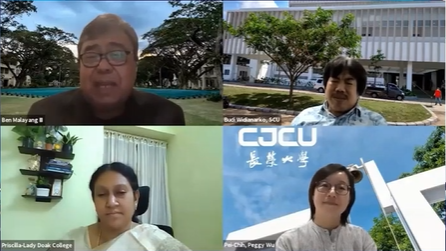
(Top-Bottom, L-R) Dr. Ben Malayang III, Dr. Budi Widianarko, Dr. Priscilla Jeyasingh, and Dr. Pei-Chih Wu.
The panelists first discussed how the climate crisis worsens existing socio-economic issues, including access to education.
Widianarko said climate change has a heavier impact on disadvantaged communities that are not equipped with enough financial and technological capacity to withstand and adapt to climate change’s effects. Students from these communities, he said, might not be able to afford higher education.
Because climate change affects communities in different socio-economic levels, Wu suggested that key risks in different sectors of the population must be identified to help create climate adaptation strategies and reduce the risks.
“We have to conduct the institutional or community-based risk assessment to identify major risks then we can come out of some adaptation (strategy), including financial support,” said Wu.
Moreover, Jeyasingh said most discussions on climate change leave out inequality or injustice, which is complex and multidimensional because it involves factors such as demographic characteristics, public decision making, and access to public resources and services such as in health, education, and finance.
“Climate change and (social) inequality are actually locked in a visual vicious cycle. When climate hazards strike, it is always a disadvantage to people in developing countries like India. Indigenous people or natives, women and children, aged ones, the migrant workers, and outdoor workers…are the most vulnerable groups because they have far less capacity [or] capabilities to adapt to these adverse conditions,” Jeyasingh said.
The effects of climate change, said Jeyasingh, also threatens basic human rights, civil and political rights, and economic and social rights. “As educators in universities and colleges, we know that our students’ lives are intricately intertwined with all these issues,” she added.
Jeyasingh suggested that climate change can be addressed in three stages: the physical effects of climate change, the social effects of climate change, and the inequalities worsened by climate change.
HEIs, she added, can contribute to the technological advancements needed to address the physical effects and can also bridge gaps in information needed by governments to create policies that address the social effects and worsening inequalities.
Role of HEIs
The Conversation 2 panelists agreed that the role of HEIs in addressing climate change include: promoting climate literacy to create climate citizens; building the capacity of communities to become climate-resilient and self-sustaining; acting as catalysts for multi-disciplinary collaboration in creating solutions; promoting service leadership among students; and merging civic engagement with research.
The panelists emphasized using the service-learning approach in developing climate competency as a basic competency among students.
Wu suggested that students can conduct research in communities that are at risk of climate change’s effects and help them develop climate resiliency.
“[Students can conduct] the university social responsibility project [wherein] they go to the community, they find some solution for the community, and then they come back to become a small business (social enterprise) and keep promoting, keep engaging with other communities,” said Wu.
In promoting climate literacy, Widianarko said universities can train and mobilize students to build awareness, empathy, and solidarity among their communities.
“Community service and service-learning is very important for our students to…understand the problem of climate change faced by the community and [for them] to discuss and learn together with the community in order to find a solution,” said Widianarko
Jeyasingh said service-learning should be incorporated into the curriculum and it must address the needs of the local community.
“Through constructive civic engagement and development of students as ethical change leaders, they can become a leading force for positive change in their community, so we need to think of the education that we offer…it should not only focus on developing professional and academic skills,” said Jeyasingh.
HEIs, added Jeyasingh, can also direct students’ research to address societal issues including climate change.
From the panelists’ suggestions, Malayang said HEIs can consider reassessing their curriculums to be more field-oriented and integrate service-learning as the main teaching approach.
“We can think of some new ways of modifications of service-learning that are more focused on capacity as well as capacitation; you build capacity but at the same time you build capacitation of the communities that you serve,” added Malayang.
Malayang shared the concept of a “labs partnership” similar to service-learning where students go to and learn from communities but also create change in the communities by engaging them in innovation.
In concluding the panel discussion, Malayang said: “I don’t see the climate crisis needing only climate solutions, but solutions that will make people prosper. If you just owe solutions that people need to pay for and then that’s it, the benefit is that the climate improves. I think that’s really a little bit of a weak approach. But if you have solutions whereby [in] doing the solutions, people make money, communities make money and improve their well-being and life, that’s a tall order; but I guess it must start with universities, with schools.”
Lessons from the pandemic
After the breakout session discussions about the climate crisis and its impacts on education, the event continued with the third Conversation panel discussion.
The third Conversation focused on “Leading Changes for Our Preferred Futures,” with panelists Dr. Barbara Mistick, United Board trustee and president of the National Association for Independent Colleges and Universities, USA; Anthony Ruger, United Board trustee; and Prof. Ong Siow Heng, professor at Singapore Management University. Vivica Xiong, director of Leadership Development at the United Board, served as moderator.
“We’d like to use our last conversation to look at roles of higher education leadership during and beyond crisis in the hope that our audience today could walk away with ideas and inspiration to create strategic and structural changes for our preferred future,” said Xiong.
Panelists discussed “pandemic-proofing” higher education, the importance of leadership in HEIs, the economic purpose of an HEI, and what makes an HEI strong in financial management during times of crisis.
Mistick said she noticed HEIs that put students first are the HEIs that figured out how to survive and thrive during the pandemic.
“I think everybody’s come out of this pandemic realizing that many of the students that we serve have economic challenges and we’ve got to figure out ways coming out of the COVID-19 crisis to not have these socioeconomic issues become barriers, so if you put students first you really can’t go wrong,” she added.
For Ong, the HEIs that did well in surviving the pandemic were the ones that prepared “for the worst” but “hoped for the best.”
Ruger, on the other hand, emphasized the importance of financial management during a crisis and maintaining economic equilibrium for a school to be able to continue carrying out its mission.
“The concept (economic equilibrium) has three basic tenets: first, the organization must fulfill its mission with adequate quality and quantity; [second,] the organization must preserve the purchasing power of its financial assets; and third, the organization must maintain needed facilities and equipment in adequate condition…The intuitive way of understanding the concept is that any trustee or employee of a Christian school wants to leave the organization in as good or better shape than when they joined it,” explained Ruger.
Beyond the pandemic
The Conversation 3 panelists also gave their suggestions on how HEIs can go forward after the challenges they faced because of the pandemic.
Ong suggested that senior leaders in HEIs should regularly communicate with their stakeholders in more “humanistic, personal” ways to reassure them that the HEI has not slowed things down and that the HEI is addressing their concerns and prioritizing their well-being.
Establishing regular communication with partner institutions, he added, is also important.
“It is important to share how our university has benefited from the collective wisdom and experience of other partner universities and in doing so we are creating a fellowship of like-minded people and universities struggling but endeavoring to do better,” Ong said.
Ong also suggested that HEIs should reach out to help their stakeholders who are struggling mentally by offering peer counseling services and pastoral help and that HEIs should find ways to continue existing programs using technology.
“Be adaptable and willing to learn…Be mindful of inequality and take steps to address this and finally, revisit the old and recreate with the new,” he concluded.
Mistick’s suggestions include looking at the role of technology as a driver of pedagogy; seizing opportunities; ensuring teamwork; and mixing “strong tradition and strong innovation” by being “radically connected” to the HEI’s mission while also being “radically innovative.”
“I wish for all of our institutions that they can figure out you know how not to just bounce back but to bounce forward and how they can look at ways of really nurturing all of the wonderful relationships that have been developed over this time period. We do have this sense that we have only gotten through the pandemic because we are better together, and if we can hold on to that ability to work together and hold on to that interest that we have in each other, then I think we will be prepared for whatever comes next,” said Mistick.
The shift to online learning, said Mistick, provided an opportunity for HEIs to assess how education can be more flexible and personalized and to find ways how to meld virtual and in-person interactions to improve learning outcomes.
“The pandemic has really shown the importance of research and the opportunities we have to leverage innovation in tackling some of society’s most significant challenges,” she added.
For his suggestions, Ruger enumerated five crucial activities and disciplines that contribute to excellent schools: team-building, faculty relations, financial management, institutional advancement or fundraising, and vision.
“The job of leadership is to discern and articulate a vision based on an institution’s heritage, values, and aspirations. Dreaming up your own personal vision and imposing it will not work. The vision must be rooted in the values and experiences of everyone who cares about the school,” Ruger said.
Dr. Kwang-Sup Lee, Hannam University president and ACUCA vice president, said in his closing remarks that as HEIs continue to face the pandemic that affects its students and their families, he has hope that the Lord will help HEIs overcome the crisis and focus on their calling to care for students and the workforce in their respective institutions.
“There is a formidable challenge ahead of us to do our best in enriching the quality of our educational programs to ensure that they are responsible to meet many challenges facing our societies. Are we addressing equality and accessibility issue in our school? Are we preparing our students to protect the environment? Are we molding our students to become compassionate to themselves, to their families, to the society?” said Lee.
Seeking wisdom
The second day of the virtual Joint Consultation started with a morning devotion led by the SU Divinity School with Dr. Judith Berling, professor emerita at the Graduate Theological Union (USA), as the devotion speaker and Rev. Hung Tse of Hong Kong Baptist University as the scripture reader.
The scriptures chosen for the morning devotion highlighted the importance of seeking wisdom, insight, and guidance from God.
Berling said the consultation among HEIs shows the institutions’ dedication to providing education that cultivates wisdom and understanding in students.
“It’s in sharing and reflecting together that we develop broader perspectives, more nuanced judgments, and new solutions that might work in our own environments. Consultation can give us hope in these challenging times,” said Berling.
The second day of the Consultation closed with the presentation of the Joint Statement about the preferred futures and the strategies on how to get there facilitated by Dr. Betty Cernol McCann, SU and ACUCA president, and Dr. Wong Wai Ching, vice president for programs of the United Board.
Dr. Wilma Tejero, ACUCA general secretary and SU Economics Department chair, served as the overall facilitator for the Joint Consultation’s second day. Dr. Maria Cecilia M. Genove SU Instructional Media and Technology Center director, served as the emcee.
With the theme “Envisioning Christian Higher Education: Our Preferred Futures,” the virtual consultation aimed to facilitate cooperation among HEIs in creating action plans with strategies in addressing two of the most pressing issues today: inequality in access to education and technology, and climate justice and sustainability.
On its first day, the Consultation focused on the topic of developing students’ competencies with Dr. Ulf-Daniel Ehlers as the keynote speaker. The Conversation 1 panel discussion focused on access, equity, and inclusion in higher education.
The consultation was also organized to celebrate the rich histories of the institutions and networks of ACUCA and UB; in time for ACUCA’s 45th anniversary, SU’s 120th founding anniversary, and UB’s 100th celebration in 2022.

